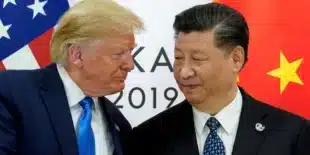The Biden administration has reinstated severe sanctions on Venezuela’s oil industry, reversing a previous easing of restrictions aimed at fostering democratic developments in the OPEC nation. This decision comes as a rebuke to President Nicolás Maduro’s efforts to entrench his administration, which have disappointed initial democratic expectations.
A senior U.S. official, speaking under anonymity, explained that American companies have 45 days to cease operations in Venezuela to prevent disruptions in the global energy market. This move marks a return to the stringent policies that were temporarily relaxed last October when the U.S. lightened sanctions following Maduro’s pledge to hold free and fair presidential elections this year, facilitated by dialogue with the opposition in Barbados.
Despite scheduling elections and welcoming international observers, Maduro’s government has allegedly manipulated the electoral process, notably by barring key opponent Maria Corina Machado from running. The U.S.’s response reinstates previous restrictions, particularly targeting dealings with Venezuela’s state oil company, PDVSA, without specific authorization.
State Department spokesman Matthew Miller urged Maduro to ensure fair electoral participation and to release political prisoners, emphasizing continued U.S. support for Venezuela’s democratic aspirations.
Venezuela has rejected these accusations, asserting compliance with the Barbados agreements and accusing the U.S. of reneging on undisclosed promises made during negotiations. Maduro, in a public address, insisted that sanctions would not thwart Venezuela’s progress towards economic independence.
Experts are skeptical about the immediate impact of these sanctions on Venezuela’s struggling oil sector or if they will motivate Maduro to equalize the electoral playing field. The brief respite in sanctions had allowed Venezuela to increase state revenues by selling oil directly, bypassing intermediaries who previously extracted significant fees.
The renewed sanctions do not affect Chevron, the last major U.S. oil company in Venezuela, which continues its operations under a special license granted in 2022 due to global supply concerns prompted by geopolitical tensions.
Critics, like former Trump administration envoy Elliott Abrams, argue that the U.S. appears more concerned with stabilizing oil prices and protecting corporate profits than addressing national security and promoting democracy in Venezuela.
The Biden administration is showing signs of frustration with Maduro but is unlikely to revert to the Trump-era “maximum pressure” strategy, which many believe only fortified Maduro’s position. Christopher Sabatini from Chatham House noted that continuing to overlook Maduro’s actions would damage U.S. credibility in utilizing sanctions effectively not just in Venezuela, but globally.
Public sentiment in Venezuela remains overwhelmingly against Maduro, with many citizens and regional allies advocating for a genuine electoral contest to challenge his rule.


